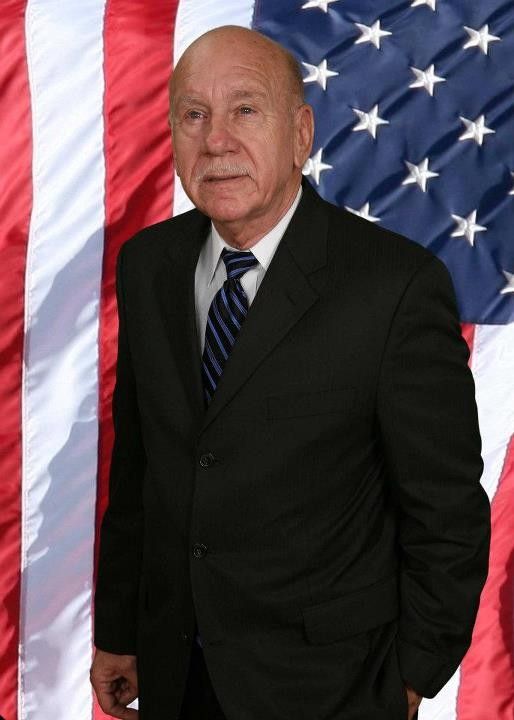Part 4-Information taken from the American Mosque 2011.
https://www.cfabamerica.com/information-taken-from-the-american-mosque-2011 part. 4
Information taken from The American Mosque 2011…
https://www.cair.com/images/pdf/The-American-Mosque-2011-part-1.pdf
https://www.cfabamerica.com/was-america-built-on-christian-doctrine part-one
https://www.cair.com/images/pdf/The-American-Mosque-2011-part-1.pdf Part 4
Charles Frederick Tolbert EdD
Retired MSGT
EdD
Pastor
561-398-9025
We have good current information thanks to “The American Mosque 2011” survey and head researcher Ihsan Bagby of the University of Kentucky (a Muslim and onetime United Methodist). Not all ethnic Muslims join, but mosque locations provide our best indicator of population dispersal since the U.S. Census does not ask about religion.
Bagby identified 2,106 U.S. mosques, up from 1,209 in 2000 and 962 in 1994. His list excludes Muslim Student Association chapters though they may host worship, and groups the orthodox do not consider Islamic, such as the Ahmadiyya Community, Moorish Science, and Louis Farrakhan’s Nation of Islam.
The biggest mosque totals are in these metropolitan areas: New York City (192), southern California (120), Chicago (90), Philadelphia (63), Detroit (62), San Francisco Bay (62), Atlanta (55), northern New Jersey (53), Houston (42), and Dallas-Fort Worth (39). States with the most mosques are: New York (257), California (246), Texas (166), Florida (118), Illinois (109), New Jersey (109), Pennsylvania (99), Michigan (77), Georgia (69), and Virginia (62).
Bagby reports that U.S. Islam is largely an immigrant faith, with 33 percent of adherents from south Asia, 27 percent from Arab countries, 9 percent from Africa, and 7 percent from other lands. As with other immigrants, Muslims tended to settle in urban areas and especially along the coasts of the Northeast and California. African-American Muslims are likewise urbanites. The immigrants naturally cluster where others from their homelands or with cultural affinity already live.
Inland town, Dearborn, Michigan, is an interesting case. For whatever reason, immigrants from Lebanon flocked to jobs at Henry Ford’s auto factory. Most were Christians, but the local Arabic-speaking Mideast culture also attracted Muslims. Dearborn’s first mosque was established relatively early, in 1937, whereas only 5 percent of U.S. mosques existed prior to 1960 (and the majority have been founded since 1990).
The faith is gradually putting down roots across much of the nation, with recent growth in suburbs more than cities, which now account for a bare 53 percent majority of mosques. There’s been notable expansion in the West and South. Mosques exist in all 50 states, though there are few in Alaska, Delaware, Hawaii, Idaho, Maine, Montana, New Hampshire, North Dakota, South Dakota, Rhode Island, Vermont, or Wyoming.
There’s hot dispute over how many U.S. Muslims there are, and Bagby’s work raises that issue. Claims have ranged from 877,000 adults (in the 1993 National Survey of Religious Identification) to 9 million of all ages (asserted by certain Muslims). Bagby asked a sample of mosque leaders to estimate attendance at the annual Eid festivals, thus not just regulars but the communal equivalent of Christians who show up on Christmas or Easter. From that, he projected 2.6 million “mosque participants,” up from 2 million in 2000. Bagby thinks if non-affiliated ethnics are added the total “should be closer to the estimates of up to 7 million.”
The total of mosques is similar to the congregations in the Christian and Missionary Alliance, which has an “inclusive” membership of only 436,000, so perhaps Bagby’s sources exaggerated. That’s the view of Tom W. Smith, veteran director of the General Social Survey at the University of Chicago. Smith’s 2001 analysis for the American Jewish Committee said the best scientific estimate was 1,886,000 with children included, adding that it’s “hard to accept” any figure above 2.8 million. The Center for the Study of Global Christianity at Gordon-Conwell Theological Seminary, whose data are widely cited, estimated a slightly higher 3.2 million as of 2000. The seminary’s experts think higher numbers than that probably include many Americans with Muslim-seeming names or ethnicity who are actually Christians.
http://www.pbs.org/wgbh/pages/frontline/shows/muslims/etc/faqs.html
A Note: As with Christianity and Judaism, there is no single way Islam is observed. There are Muslims in virtually every country on the globe, and their interpretations of the Quran are as varied as the cultures in which they live, often influenced by their histories and political environments.
What do Muslims believe?
Read this short primer which explains the fundamental tenets and beliefs of the Islamic faith.
Are all Muslims Arab?
No. Only about 15 percent of the estimated 1.2 billion Muslims worldwide are Arab. According to the Muslim Journal, 30 percent of Muslims live in the Indian subcontinent, 20 percent live in sub-Saharan Africa, 17 percent live in Southeast Asia, and 10 percent live in the former Soviet states. There may be as many as 50 to 70 million Muslims in China, alone.
Does Islam condone terrorism?
No. The Quran specifically prohibits the killing of innocent people. Chapter 5, verse 32 of the Quran states, “We ordained for the Children of Israel that if any one slew a person — unless it be for murder or for spreading mischief in the land — it would be as if he slew the whole people; and if any one saved a life, it would be as if he saved the life of the whole people.”
Why do women cover their hair?
The Quran enjoins Muslim men and women to be modest in dress and behavior, and discourages the provocative sexual display of their bodies. Quran chapter 24, verses 30-31, adds that women should let down their “head coverings over their cleavages.” Some scholars interpret this verse mentioning head covering — which was the traditionally worn headgear of both men and women of the time and culture — as meaning that women should cover their hair. Verse 60 of the same chapter 24 says that there is no sin in post-menopausal women “putting off” their clothes, since they may not be sexually provocative by doing so. (Also, explore the web site of the Muslim Women’s League for more background on women and Islam)
Why don’t I see pictures of women praying in mosques?
Women do pray in mosques. It depends on the photographer and the mosque. The women line up in rows behind the men. Sometimes men and women are separated in the worship area by a curtain. In that case, only a female photographer would have access to the women’s area.
Who is the prophet Muhammad?
The prophet Muhammad was born in about 570 C.E., on the Arabian Peninsula, in the city of Mecca. He grew to be a successful businessman who was known for his trustworthiness and his spiritual searches. Muslims believe that when he was 40 years old, Muhammad was meditating in a cave outside of Mecca when the angel Gabriel appeared to him. In a series of encounters that took place over 22 years, Gabriel began orally revealing the Quran to the prophet. These revelations were memorized and written down as the Quran. Muslims believe that Muhammad is the last in the line of prophets beginning with Adam, and including Noah, Abraham, Moses, Elijah, John the Baptist, and Jesus.
Who is Allah?
Allah is the Arabic word for God. You will notice the two words are used interchangeably on this Web site. Arab Jews and Arab Christians also use the word Allah for God.
What is the Quran?
Muslims believe the Quran is the complete compilation of the revelation of Allah to Muhammad; some of it revealed through the angel Gabriel, other portions revealed directly to the prophet.
How many Muslims are there in the United States? Where are they from?
Estimates range that between five to 12 million Muslims live in the United States. About one-third of them are African-Americans. Another third are originally from the Indian subcontinent, including Pakistan, India and Bangladesh. The last third include Arab immigrants, Latinos, other European and Caucasian Muslims, and converts to Islam. The first Muslims to come to the Americas were brought as slaves. The first mosque built in America was in Cedar Rapids, Iowa.
Where is Mecca and why is it important?
Mecca is a city near the western coast of Saudi Arabia, approximately a 45-minute car ride east of Jeddah. Muslims believe that the prophet Abraham founded the town of Mecca when he deposited his son, Ishmael, with his mother Hagar, in what was then a desolate valley. When Ishmael grew up, Abraham came to Mecca and there they laid the foundation for and built the first house of worship dedicated to the one God. This building is the Kaaba. Muslims worldwide face toward the Kaaba when they pray. When Muslims make their pilgrimage they stop at Mecca to circumambulate the Kaaba before heading outside the city to the plain of Arafat. Mecca is the city of birth of the prophet Muhammad.
How do you become a Muslim?
To become a Muslim you must testify that you believe there is no God but Allah, and that Muhammad is God’s messenger. This is called the “shahada,” or declaration of faith.
What do Christianity, Judaism and Islam have in common?
Judaism, Christianity and Islam share a joint legacy of Biblical tradition through the Hebrew Bible; Christianity and Islam continue that sharing through the New Testament. The three faiths share many of the same prophets, all acknowledging a common parent in Abraham. All ascribe similar attributes to God, including creator, sustainer, judge, and forgiver. The three faiths believe God is both omnipotent and omniscient. The kinship of these faiths continues through ethical principles, including respect for life, respect for parents, and a work ethic that includes giving charity, doing good, and avoiding evil.
What does Islam say about Jesus?
According to Ira Zepp in A Muslim Primer, “Islam thinks very highly of Jesus, more highly than any other religion does, save Christianity.” In the Quran, Jesus is called “Messenger,” “Messiah,” “Son of Mary,” “Word of God,” and other titles of reverence. According to Zepp, a Christian minister, “Jesus is considered the most significant prophet (rasul) next to Muhammad. A cardinal tenet of Islam’s faith is belief in Jesus; you cannot be a Muslim without honoring Jesus as a revelation from God.”
What does Islam say about Jews?
Jews and Christians are “People of the Book” to Muslims — fellow recipients of God’s instructions via angels and prophets. Chapter 2, verse 62 of the Quran states: “Surely those who believe, those who are Jews, and the Christians, and the Sabians, whoever believes in God and the Last Day and does good, shall have their reward with their Lord. There is no fear for them, nor shall they grieve.” The Torah is considered a revealed scripture, as are the Psalms and the Gospel.
Historically, Jews and Muslims have shared close cultural contact and prosperous centuries, best reflected in the 700 years of Muslim rule in Spain, where Jews held some of the most important political positions, were doctors to the caliphs, and generated profound philosophical theories. Maimonides lived and wrote The Guide to the Perplexed in Cordoba, Spain. A statue in his honor stands there still, not far from the Great Mosque. When Catholic powers completed their invasion of Andalusia and deposed the Muslim caliph in 1492, Jews and Muslims fled together to the safety of Muslim lands in North Africa and east toward Egypt, Palestine, Syria and Iraq. Today these Jews are known as Sephardim.
Quranic verses translated as prohibiting Muslims from ‘befriending’ Jews and Christians, or unbelievers, have been contextually interpreted on the hostilities at the time between the nascent Muslim community in Medina and those who sought to destroy this community. The Quran in chapter 60, verses 8-9, explains further: “God does not forbid you from showing goodwill and dealing justly with those (of
the unbelievers) who do not fight you because of your religion, nor drive you forth from your homes. God surely loves those who are just. God only forbids you respecting those who fight you on the basis of your religion, and expel you from your homes…”
This interpretation is the standing one. The Caliph Umar under whom Jerusalem was conquered about six years after the prophet’s death, not only issued an edict protecting the Christian religious sites, but also invited 70 Jewish families from Tiberias to take up residence in Jerusalem, from which they had been expelled by the Romans. His nuanced understanding in implementing the spirit and the letter of the Quran is considered much closer to that of the prophet.
What is jihad?
The greater jihad is the ongoing struggle within one’s own soul to be a better person: to ward off temptation, to do the right thing, follow one’s conscience and God’s commandments and develop a closer relationship with Allah. The lesser jihad is the considered response to attack with self-defense.
https://www.cfabamerica.com/was-america-built-on-christian-doctrine. Part -one
https://www.cair.com/images/pdf/The-American-Mosque-2011-part-1.pdf Part 4
Citizens for a Better America, Inc.
Retired MSGT
EdD
Pastor
Cfabamerica@gmail.com
561-398-9025
To be continued —–
Part 5 Summarization and conclusions Part 1 through 4 —–
Www.writeintolbert.com
Copy Editor: Vilet Dye…viletsvoice@yahoo.com









